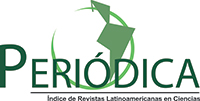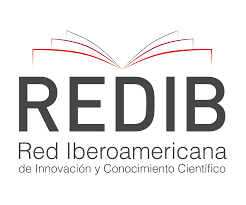SAINDO DO HOSPITAL PSIQUIÁTRICO: O IMPACTO DA VIVÊNCIA “EXTRA-MUROS”
DOI:
https://doi.org/10.5380/ce.v5i2.44887Palavras-chave:
Saúde mental, Hospital psiquiátrico, Enfermagem psiquiátrica.Resumo
Um dos desafios deste novo milênio, para Saúde Mental, é a desconstrução dos hospitais psiquiátricos tradicionais, considerando-se a grande população de pessoas que ainda vive em seu interior. Hoje, a cidade de Ribeirão Preto -SP possui uma rede de atenção diversificada e consolidada de serviços substitutivos do modelo manicomial: Núcleo de Atenção Psicossocial (NAPS), Núcleo de Atenção Psicossocial para Fármaco-Dependentes (NAPS F), Ambulatório Regional de Saúde Mental (serviços ligados a prefeitura); Unidade de Emergência Psiquiátrica, Enfermaria Psiquiátrica em Hospital Geral, Hospital-Dia (serviços pertencentes ao Hospital das Clínicas da Faculdade de Medicina de Ribeirão Preto-USP), além de um Programa de Pensão Protegida. Este último vem sendo desenvolvido desde 1992, por um hospital psiquiátrico de grande porte, desta cidade, que tem por objetivo a reinserção do paciente na comunidade. Pretendemos, neste estudo, discutir o acesso à cidadania, pano de fundo deste Programa, no qual um grupo de doentes está inserido. Através de visita domiciliar para acompanhamento da convivência “extra-muros” de três pacientes do sexo feminino, que residem em uma dessas pensões, detectamos dificuldades de relacionamento, de enfrentamento das situações diárias e reinternações. Tomando estes achados como objeto de reflexões, foi possível concluirmos que esta clientela necessita de algum tipo de suporte, o qual os profissionais da saúde mental podem oferecer, tendo consciência de que precisam repensar sua prática de intervenção.
Downloads
Como Citar
Edição
Seção
Licença
A Cogitare Enfermagem se reserva no direito de efetuar, no artigo publicado, alterações de ordem normativa, ortográfica e gramatical, com vistas a manter o padrão culto da língua, respeitando, porém, o estilo dos autores.
O estudo publicado é de inteira responsabilidade do(s) autor(es), cabendo exclusivamente à Cogitare Enfermagem a avaliação do manuscrito, na qualidade de veículo de publicação científica. Não será permitido acréscimo ou mudança de autoria durante a etapa de avaliação ou após aceite do texto submetido.
A Cogitare Enfermagem não se responsabiliza por eventuais violações à Lei nº 9.610/1998, Lei Brasileira de Direitos Autorais.
A Cogitare Enfermagem permite que o autor detenha o copyright dos artigos aceitos para publicação, sem restrições.
Propriedade Intelectual e Termos de uso
Responsabilidade do Autor:
Quanto a autoria, os autores necessitam especificar, na página de identificação, qual o tipo de contribuição individual que exerceu durante a elaboração do artigo. Conforme os critérios estabelecidos pelo ICMJE disponível em: http://www.icmje.org/recommendations/browse/roles-and-responsibilities/defining-the-role-of-authors-and-contributors.html .
É importante destacar que são considerados quatro critérios mínimos de autoria, e todos aqueles designados como autores devem atendê-los, são eles:
- Contribuições substanciais para a concepção ou desenho do estudo; ou a aquisição, análise ou interpretação de dados do estudo;
- Elaboração e revisão crítica do conteúdo intelectual do estudo;
- Aprovação da versão final do estudo a ser publicado;
- Responsável por todos os aspectos do estudo, assegurando as questões de precisão ou integridade de qualquer parte do estudo.
Não será permitido acréscimo ou mudança de autoria durante a etapa de avaliação ou após aceite do texto submetido.
Os artigos publicados estarão licenciados sob a licença Creative Commons CC BY 4.0 Creative Commons — Attribution 4.0 International — CC BY 4.0 – A atribuição adotada pela Cogitare Enfermagem é permitida:
- Compartilhar – copiar e redistribuir o material em qualquer mídia ou formato;
- Adaptar – remixar, transformar e construir sobre o material para qualquer finalidade, mesmo comercialmente;
- Atribuição — Você deve atribuir o devido crédito, fornecer um link para a licença, e indicar se foram feitas alterações. Você pode fazê-lo de qualquer forma razoável, mas não de uma forma que sugira que o licenciante o apoia ou aprova o seu uso;
- Sem restrições adicionais — Você não pode aplicar termos jurídicos ou medidas de caráter tecnológico que restrinjam legalmente outros de fazerem algo que a licença permita.
Responsabilidade do Site:
A Cogitare Enfermagem encoraja os Autores a arquivar seus manuscritos aceitos, publicando-os em blogs pessoais, repositórios institucionais e mídias sociais acadêmicas, bem como postando-os em suas mídias sociais pessoais, desde que seja incluída a citação completa à versão do website da revista.”























